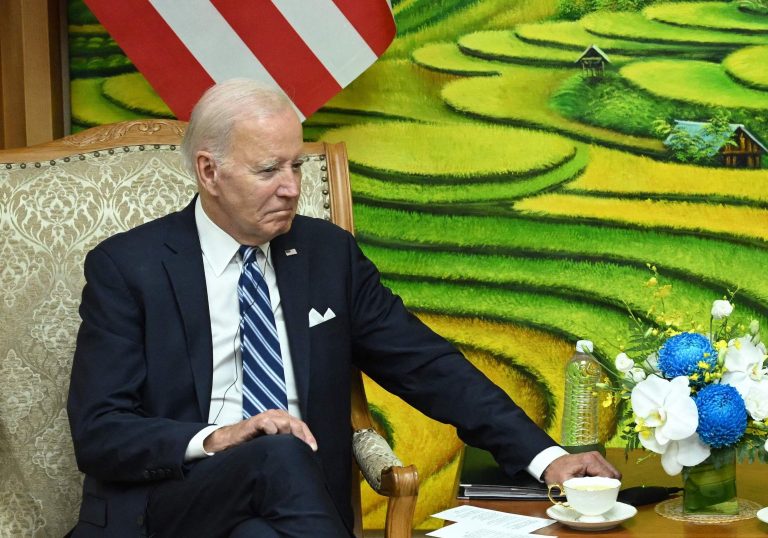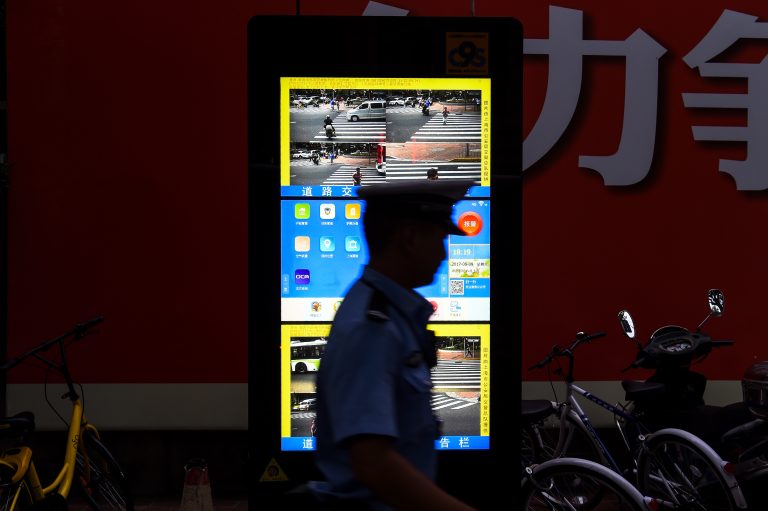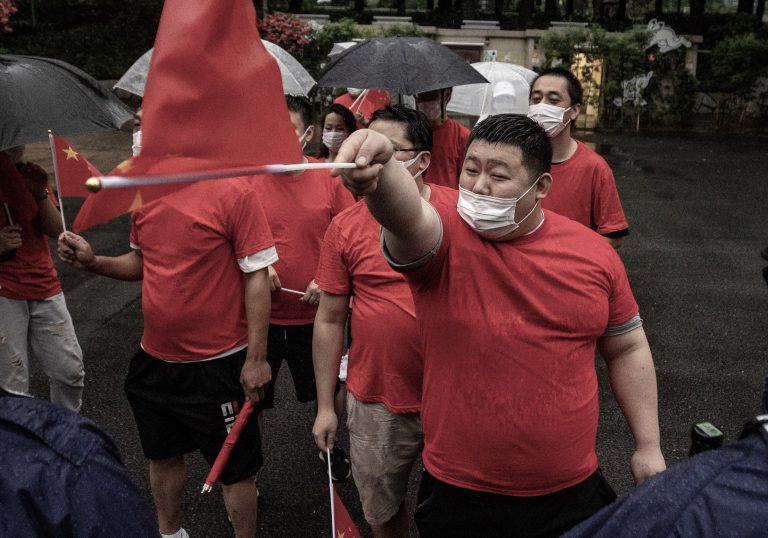2019 marks the 70th year since communist armies led by Mao Zedong conquered mainland China and imposed a brutal socialist regime upon the world’s most populous country. Under Mao and his successors, the Chinese Communist Party has killed tens of millions of Chinese, and done incalculable damage to their five millennia of culture and heritage.
But to see how the atheism and class struggle of Karl Marx toppled China’s age-old faiths and virtues, it is necessary to understand the impact of the 1919 May Fourth Movement.
China at the time was in turmoil. The final decades of the Qing imperial dynasty (1644-1911) had seen the descent of the country into backwardness, civil war, and corruption. Western industrial powers, later joined by a modernized Japan, forced ruinous unequal treaties upon China after defeating it in a series of wars and invasions.

In the 19th century, the Qing Dynasty suffered from civil wars, foreign invasion, and unequal treaties. (Image: via wikimedia / CC BY-SA 3.0)
A ‘New Culture’ for China
Through Qing imperial scholars and officials of the late 1800s had attempted to learn technology and skills from the West, as Japan had done, they were strictly against abandoning the cultural heritage and traditions that defined China as a civilization.
Success
You are now signed up for our newsletter
Success
Check your email to complete sign up
But as the Qing Dynasty collapsed, China descended into an era of feuding warlords and weak republican administrations, seemingly unable to govern the country, let alone repel foreign encroachment.
A growing cadre of intellectuals believed that China’s misfortunes were not only a matter of technological backwardness, but that its very culture had doomed the Chinese people to misfortune.
Lu Xun, a student of literature made famous for his satirical writings, wrote in his short story Diary of a Madman that the whole of Chinese civilization could be summed up as “cannibalism.” In The True Story of Ah Q, Lu’s titular protagonist represented what he believed to be an archetype of the typical Chinese: hypocritical, self-deceptive, and doomed to suffer repeated humiliations.
Thinkers like Lu Xun, jaded by the events of recent history, attacked the traditional codes of morality and order that had governed Chinese society for thousands of years. Instead of trying to update it, they believed that China needed to reinvent itself entirely.

Lu Xun, who claimed that Chinese culture amounted to ‘cannibalism,’ was praised by communist leader Mao Zedong as the ‘chief general of China’s cultural revolution.’ (Image: Public Domain)
Leading members of the New Culture Movement thought up ways to demolish Chinese culture from its foundations. Scholars and activists like Hu Shih and Chen Duxiu sang the praises of vernacular Chinese literature and denounced the ancient form of Classical Chinese. The linguist Qian Xuantong wrote that Chinese script itself promoted “childish, naive, and barbaric ways of thinking” and advocated the replacement of Chinese characters.
Proponents of the New Culture Movement were determined to rescue China from itself, criticizing everything from Chinese clothing styles to the authenticity of classic texts. Some even claimed the family should be abolished.
The May Fourth Movement
Young Chinese were particularly incensed by their incompetent government. In Beijing, the capital of the Republic of China, the president had little power and had to do the bidding of whichever warlord happened to occupy the city.
Following World War I, the victorious powers denied China representation at the peace negotiations, despite the fact that China had declared war on Germany and retaken its colonial holdings in China, as well as sent over 100,000 laborers to the Western Front to help the war effort there. To add insult to injury, the former German territory in Qingdao, eastern China, was handed over to Japan.

Over 100,000 Chinese laborers worked on the Western Front in support of the Entente. (Image: Weihai Archive)
Outraged, thousands of students took to China’s streets in protest on May 4. The demonstrations soon turned violent, with people attacking those they suspected of having allegiance to the Japanese. The protests were dispersed by the military. Though the Chinese government boycotted the Treaty of Versailles, Japan was still awarded the territory of Qingdao.
It was not until 1921 that Tokyo relinquished control of the city under American pressure.
Though the May 4 protests did not achieve its goals, it was put to great use by participants of the New Culture Movement in spreading their ideas and mobilizing support. In particular, the growing atmosphere of chaos and anger in Chinese urban society drove the rise of left-wing radicalism and the creation of the Chinese Communist Party.
Inviting the Red Specter
The CCP regards the May Fourth Movement as one of the great events that paved the road for its successful spread in China, and eventually its seizure of power in 1949. Though the intellectuals and thinkers of the New Culture Movement did not all share the same opinions, the events of May 4 made Marxism, social Darwinism, and other left-wing ideologies popular on Chinese campuses and among the educated youth.
Further adding to the popularity of leftism was the fact that the communist Bolshevik Party had recently seized power in Russia and established a Soviet regime, which, at least on paper, was committed to building a classless, equal society.
In 1921, a tiny band of radicals, with support from the Comintern Third International, formed the Chinese Communist Party in Shanghai. Two main participants of the May Fourth and New Culture movements, Chen Duxiu and Li Dazhao, were among its first leaders.
With the momentum from the May Fourth movement, the CCP quickly grew and managed to infiltrate the Chinese Nationalist Party (KMT), whose leader Sun Zhongshan is honored for his role in establishing the Republic of China following the collapse of imperial rule.
Mao Zedong, chairman of the CCP who ruled China from 1949 to his death in 1976, praised the radical writer Lu Xun as the “chief general of China’s cultural revolution.” Lu’s works are heavily represented in mainland Chinese educational curriculums.

In 1966, Chairman Mao launched the Cultural Revolution in reminiscence of his bygone revolutionary days. (Image: The Epoch Times)
Many recognize the radicalism of May 4 as a watershed moment for the cause of Chinese Marxism, and its later misrule of the country. Feng Xuerong, a Chinese scholar based in Hong Kong, summed it up:
“The May Fourth Movement, apart from … sowing the fire-seeds of violence, yielded no positive results to speak of… It didn’t help save the country or leave a legacy of virtue. It was nothing more than a scene of chaos.”
In 1966, Chairman Mao launched the Cultural Revolution in reminiscence of his bygone revolutionary days. Millions of people became victims of violence and abuse inflicted by the fanatical Red Guards. The campaign targeted the “Four Olds” of traditional culture with a vengeance, putting the ideas of the May 4 radicals into deadly practice.
Follow us on Twitter or subscribe to our weekly email













